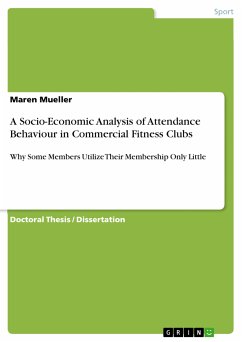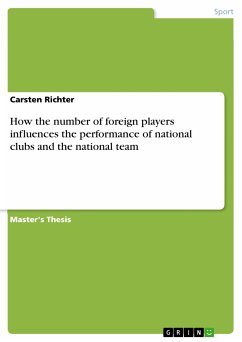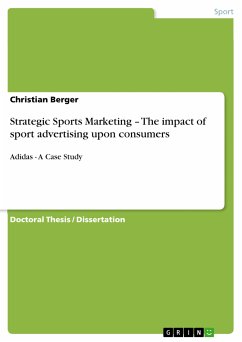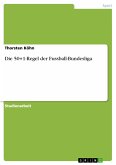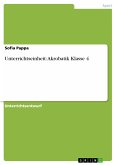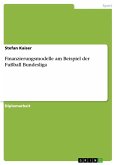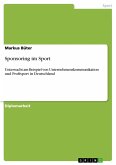Doctoral Thesis / Dissertation from the year 2012 in the subject Health - Sport - Sport Economics, Sport Management, grade: cum laude, Sport Academy Cologne (Institut für Sportökonomie und Sportmanagement), language: English, abstract: The study examines the question why some members utilitze their fitness club membership only little. This behaviour seems to be odd under microeconomic theory assuming human beings to maximize profits. An estimated 30% of fitness club members in Germany utilize their membership rarely but still do not intend to cancel despite ongoing monthly fees. In order to answer the question of the thesis, utility functions are employed embedding not only traditional economic factors such as money and time but also variables from social sciences, particularly from motivation theory and sport science. Further, recent findings from flat rate effects are elaborated whether to have an impact on non-attendance behaviour. The work adds to a young field in economics, namely to behavioural economics. Economic studies so far predominantly examined on consumption behaviour and the quantity thereof but not on possible utility of non-consumption behaviour. The examination is not only interesting from a theoretical perspective, it also gives practical implications and recommendations to fitness club managers and fitness club consumers. Having insight into determinants of non-consumption behaviour might help fitness club managers to identify customers who attend infrequently but pay regular fees. In this, fitness club managers can implement successful acquisition and relationship management strategies. On the other hand, fitness club consumers can derive conclusions from the study in order to become aware of their behaviour and to possibly behave more cost-efficiently in the future.

